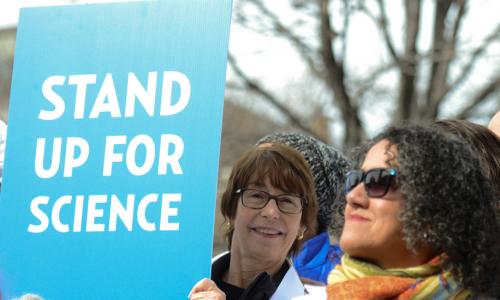Harold Bock has spent his entire life in Parkersburg, WV, right in the heart of the Mid-Ohio Valley, where he lives just a few miles from the infamous Washington Works plant. He’s an advisory board member of the advocacy group Keep Your Promises DuPont, which has been leading the fight to hold DuPont and Chemours accountable for toxic water contamination and the companies’ decades-long cover-up. For more on the work of Keep Your Promises DuPont, you can follow the organization on Facebook and Twitter.
I’d been saying for years that there was something wrong with our water. It didn’t taste right, it didn’t smell right.
When I received a letter from Lubeck Utilities back in 2001, saying that there’s this chemical in my water that I’d been drinking for years, naturally I was concerned. I did some digging, and found out it was this thing called perfluorooctanoic acid, or PFOA. I didn’t know what the chemical was, I didn’t know where it came from, and I sure didn’t know how to pronounce it. No one else did either. At the time, none of us in Parkersburg had any idea how dangerous this stuff was. We knew there were more diseases in the Valley than in other places, but we had no idea that DuPont had been poisoning our families and covering it up since the 1950s.
The longer I kept digging the more concerned I got. When lawsuits started coming out, that’s when I realized how big a problem PFOA was in our community. I knew plenty of people with one of the diseases linked to PFOA - kidney cancer, testicular cancer, thyroid disease, ulcerative colitis, high cholesterol (hypercholesterolemia), and pregnancy-induced high blood pressure (including preeclampsia). It all made sense to me at least - children whose teeth were turning black and three young men within a couple blocks of my house who had testicular cancer. All being caused by this invisible toxin we were drinking every single day.
I went from concerned to outraged to “okay, what can we do to stop this?”
When I started working with Keep Your Promises DuPont, that’s when we really started to bring national attention to the issue. Along with hundreds of folks in my community, Keep Your Promises DuPont and I have been fighting for transparency and accountability from DuPont and Chemours, the companies that have poisoned us for decades.
As we kept digging, we uncovered more details of DuPont’s coverup. As a community, we had trusted that DuPont would not knowingly dump toxic chemicals into our water supply. DuPont took advantage of that trust.
DuPont was dishonest about the whole thing, and it started from the top. Internal documents show that top executives knew about the dangers of PFOA for decades, since the 60s. They knew its health effects, saw the babies of employees that were born with birth defects, and did nothing to protect or inform their employees. They hired scientists to say that PFOA isn’t dangerous, they dragged their feet for a decade on class action lawsuits, hid documents, and even spun off the liability to another company, Chemours.
In all of this cover up, DuPont could have taken care of our community. They aren’t protecting us from the PFOA that’s still harming us, and they’re introducing new dangerous chemicals, like GenX, that are untested and have never been proven safe.
With the help of great attorneys and Keep Your Promises DuPont, we’ve shown the world the lengths a company like DuPont will go to to avoid accountability. We’ve raised awareness worldwide about PFOA and set an example to other communities. We’ve sent dozens of letters to the EPA, Attorneys General, and elected officials. In part because of our efforts, the EPA lowered the limit of PFOA allowed in drinking water. Now that more contaminated communities have appeared, there’s more pressure than ever on these chemical giants and the government to keep this from happening again.
I don’t think the fight is over. There’s new chemicals - like GenX, the replacement for PFOA - that we know are in our water today. In North Carolina, it’s all over the news. It’s something people are used to living with nowadays and they say, “there’s nothing we can do about it.” I think that’s the phrase that I hate the most. DuPont created this problem and let it happen for decades right here in Parkersburg, not to mention all across the country and all around the world. If someone let it happen, then we can do something about it.
We’re just saying clean up your act and clean up our water.




